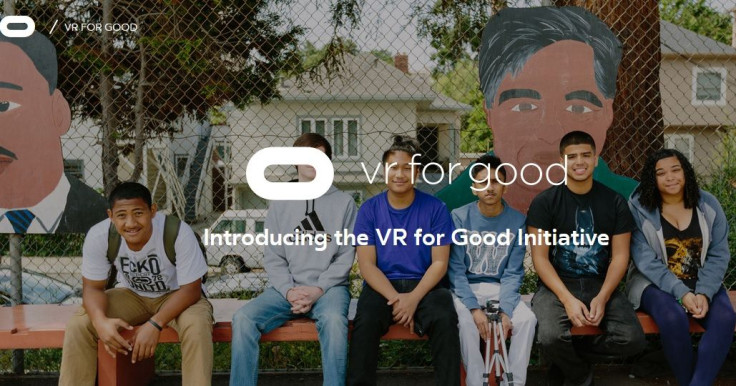VR developments: Oculus Rift does VR for Good campaign, Google delivers VR-ready OS in Android

There have been a lot of developments in the VR industry. In both the headsets and software program, there are two notable events that have recently occurred.
The first involves Oculus VR, and a new non-profit program that makes use of its Rift headset. VR for Good is looking at making use of VR technology to push for social change.
“Virtual reality has unlimited potential for gaming and entertainment, but it’s also a powerful way to drive important social change,” said Oculus over its official blog.
The program launches two pilot VR film programs aimed at VR creators that involves students, non-profit organisations and filmmakers alike. There’s 360 Filmmakers Challenge for Students, where filmmakers will partner with high schools from the San Francisco Bay Area to create three- to five-minute 360 films about communities. All of the necessary equipment and even new technology and production skills will be provided for.
There’s also the 360 Bootcamp for Nonprofits, which teams together 10 rising filmmakers with 10 nonprofits to make 360 VR films on social missions. Again, all of the necessary equipment will come from Oculus, and the videos will be featured at the Sundance 2017. Application is ongoing for nonprofits organisations and filmmaakers until May 30.
Over at Google’s side of the VR world, it seems that Android will become VR-ready in the near future. Google is now giving some preliminary details about the Virtual Reality mode built right into the Android N Developer Preview 3.
According to Ars Technica, this will be the company’s step outside of Google Cardboard in introducing VR into the Android platform. This means that the next step will have a more immersive VR experience.
“[Google Cardboard is] clever and simple but we never did anything at the platform level to make it work. With N, we have,” said Android VP of Engineering Dave Burke to Ars Technica.
The main changes that Google is looking to implement on Android N involves better motion-to-photon latency. This is aimed at lessening the motion sickness feeling that comes with delayed display change-to-head-motion action.
This will be achieved with the use of a dedicated CPU core to the UI thread to shoulder heavy processing. Still, to achieve this kind of shift in processing, Google is looking at a smartphone certification program, as the mechanic will require a mix of hardware and software compatibility. As per the source, it seems that the Nexus 6P will be the first VR-ready smartphone to be part of the certification program.




















